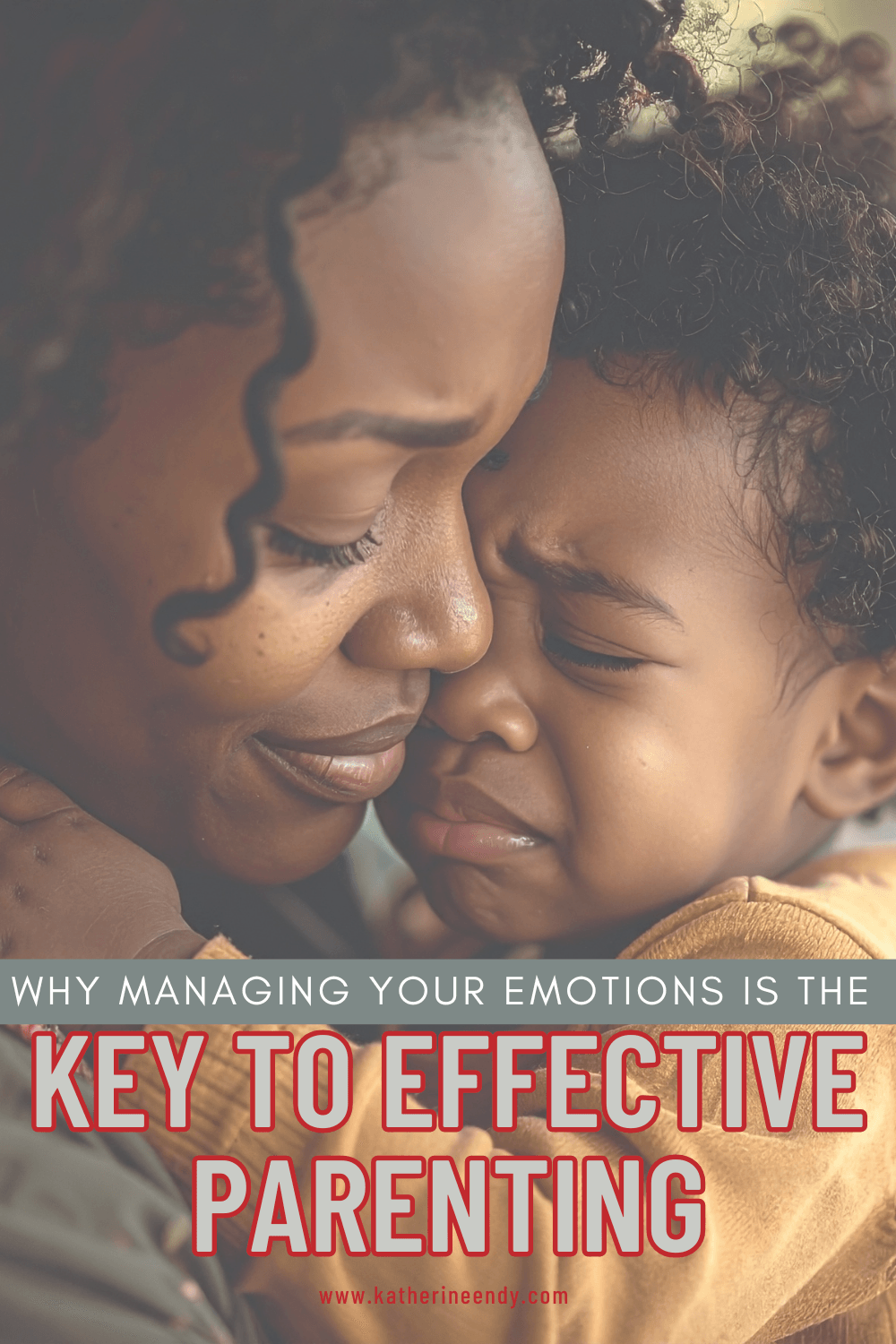What's your parenting personality? Take the quiz to find out!
The Emotional Domino Effect: How Regulating Your Emotions Transforms Family Life
I think it goes without saying that parenting is stressful.
In fact, research shows that parenting stress is universal and is particularly high during the early childhood years, when the day-to-day demands of caregiving are incessant.
Parenting stress is particularly high when parenting demands and the parent’s perceived ability to meet those demands are out of proportion - in fact, this is the very definition of parenting stress.
When I was a new-ish mom, caring for three children under the age of 5, a part of me did not believe I really had what it takes to manage all the demands of parenting and keep my sanity.
Although I had experience babysitting since I was 11 (who leaves their kids with an 11-year-old?!), had worked as a nanny, a preschool teacher, a special educator for kids with autism, and a play therapist, I felt emotionally ill-equipped to manage my own three children. And the fact that I had so much knowledge and experience with children made this even harder for me. I felt like I should be really good at this parenting gig. I often felt like I just wasn’t.
The hardest part for me was keeping my cool when my kids lost theirs.
Which happened on a daily basis, sometimes dozens of times a day.
Kids’ brains are still growing and developing, so they don’t have the neurological “software” to be able to calm themselves down when they are upset.
What does this mean? It means that growing humans still need a lot of help regulating their emotions.
They need to “borrow” the calm, regulated nervous system of a grown-up human in order to move through difficult emotions because they don’t yet have the necessary tools to do this on their own…which is why managing your emotions is the secret key to calm and effective parenting.
Let’s explore why.
This reality requires us, the adults, to get really good at regulating our emotions, so we can show up as a helpful presence when our kids are upset, rather than getting sucked into our child’s emotional spiral.
This is not easy!
And if you had a difficult childhood, if you experienced trauma, or you had parents who were not particularly “good at emotions” (most of us have parents like this!), you are at a slight disadvantage in the emotion regulation department.
This does not mean all is lost or that you are doomed to be a bad parent, it just means you have some work to do. We all do. I know I certainly did!
My own emotion regulation journey began when I started learning about Conscious Discipline (the work of Dr. Becky Bailey).
I found it really helpful that she provided scripts of exactly what to say in certain situations, especially knowing that we lose access to the smart, “thinking” part of the brain (the prefrontal cortex) when we get stressed, so it becomes more difficult to find the right words in those moments.
Soon, I had an opportunity to use one of the scripts I had learned.
My then-toddler son and preschool-aged daughter were squabbling over a toy, so I said, “IF YOU WANT THE TOY, YOU CAN SAY, ‘CAN I HAVE THE TOY PLEASE?’!!!”, the exact words I had learned in the training.
The idea was to give kids the tools they don’t yet have - in this case, the ability to “use your words.” Instead of saying “use your words” - something a two-year-old really can’t do when he’s stressed or mad - I gave my son the words in hopes of facilitating some conflict resolution.
However, I missed one critically important step here. Can you guess what I did wrong?
I didn’t pause, take a deep breath, and regulate myself first.
I said the right words, but I was impatient, frustrated, and starting to lose my cool. I practically yelled the “helpful” words at my already-dysregulated toddler.
I was overwhelmed and out of patience, so the thing that was meant to be helpful in getting my kids to settle down and work out their conflict only escalated the situation - and fast.
Instead of calmly supporting a conversation between my two little people, I dumped lighter fluid on the fire and everyone started crying.
Emotion regulation is simple, but not easy.
Emotion regulation requires enough self-awareness to know when your emotions are escalating and a willingness to pause, observe yourself, and consciously choose to take charge of yourself…your emotions…your nervous system.
In my next post, we'll talk about how to cultivate emotion regulation!
Follow Us
Sign up for Katherine's Monthly Conscious Parenting Newsletter!
Join our mailing list to receive CALMER Parenting Insights, my monthly parenting newsletter to help you shift your perspective and parent consciously. Don't worry, your information will not be shared.
We hate SPAM. We will never sell your information, for any reason.








